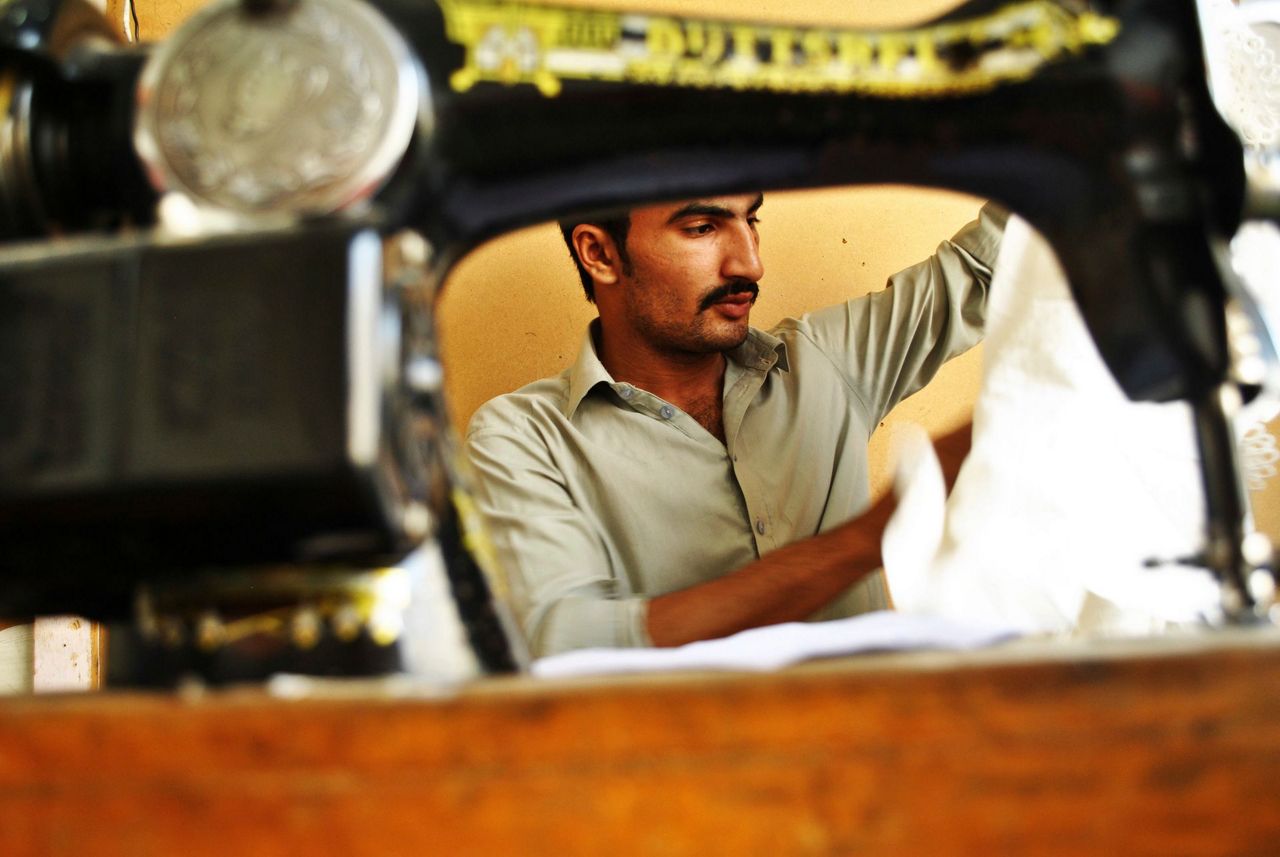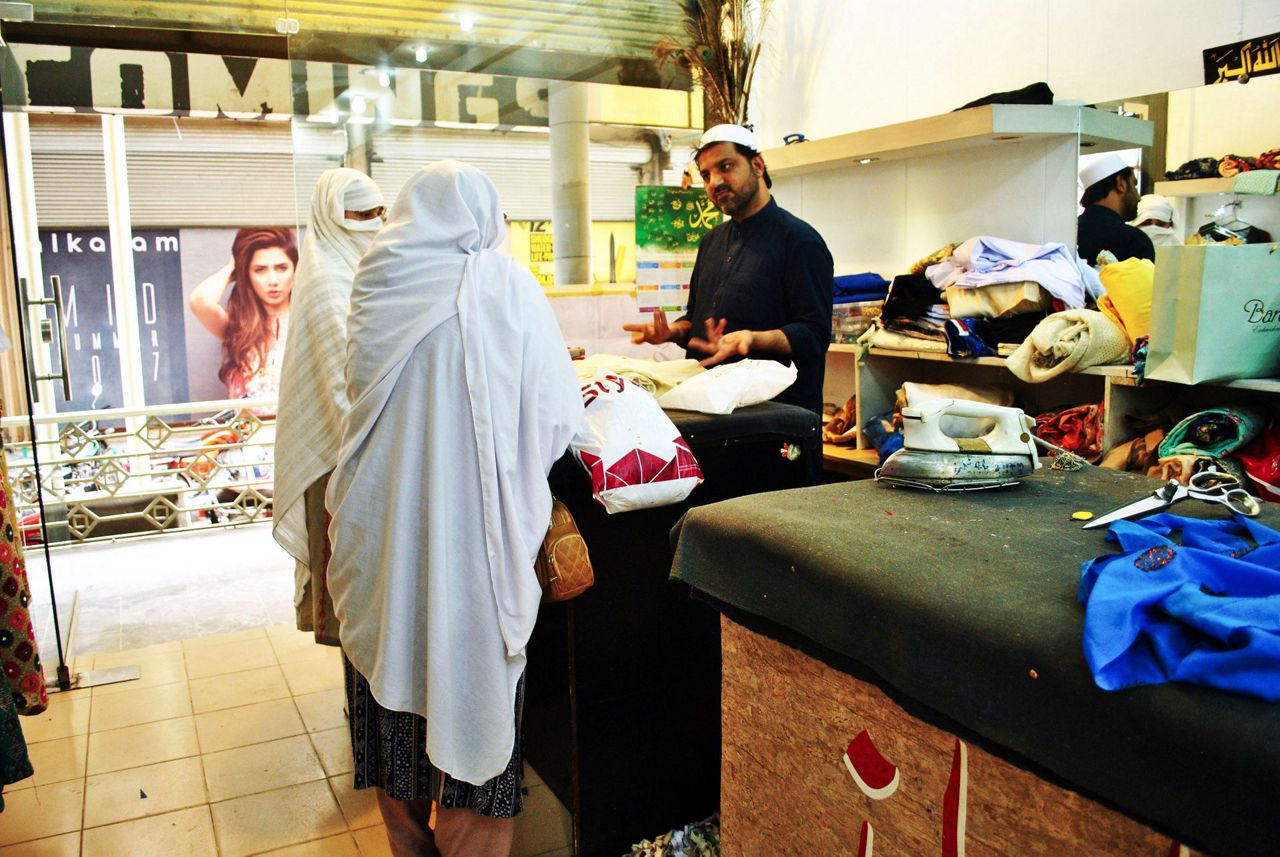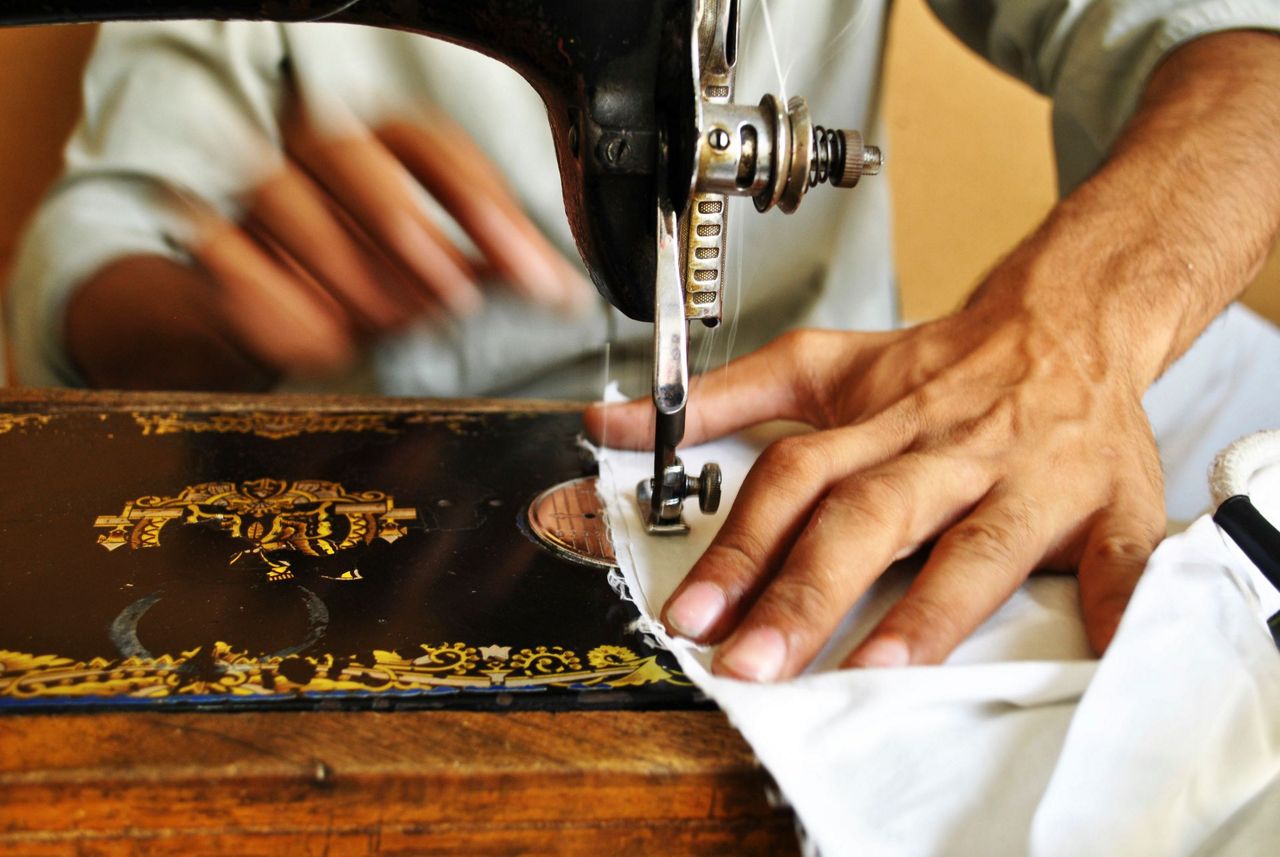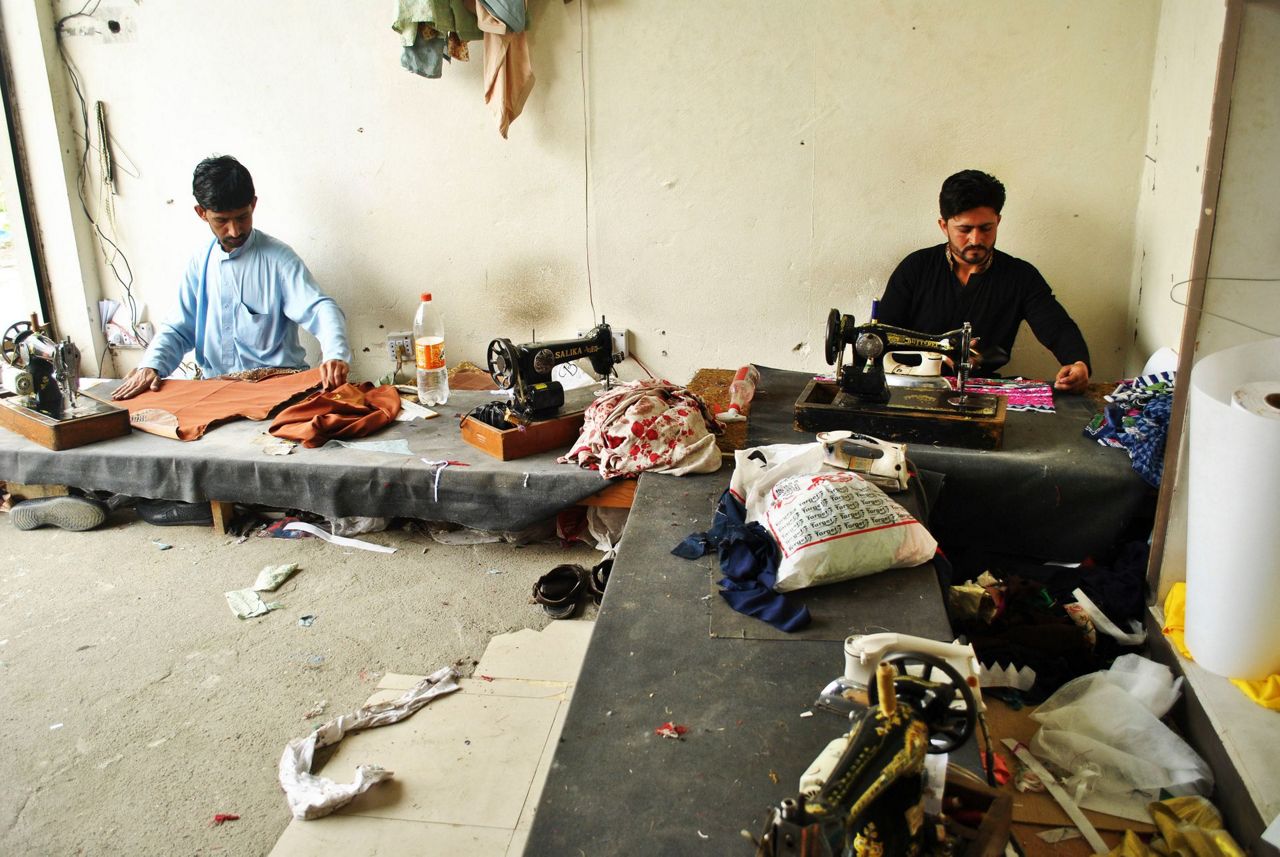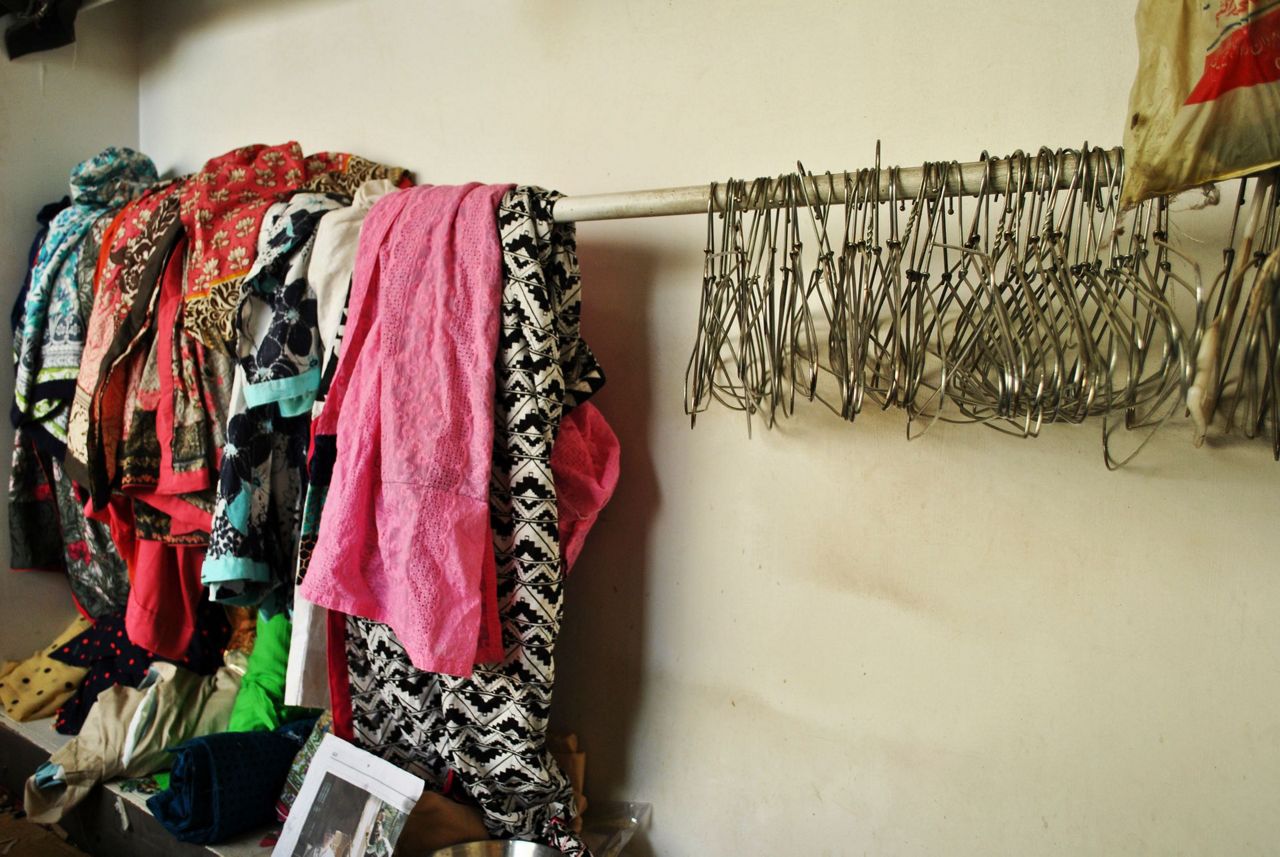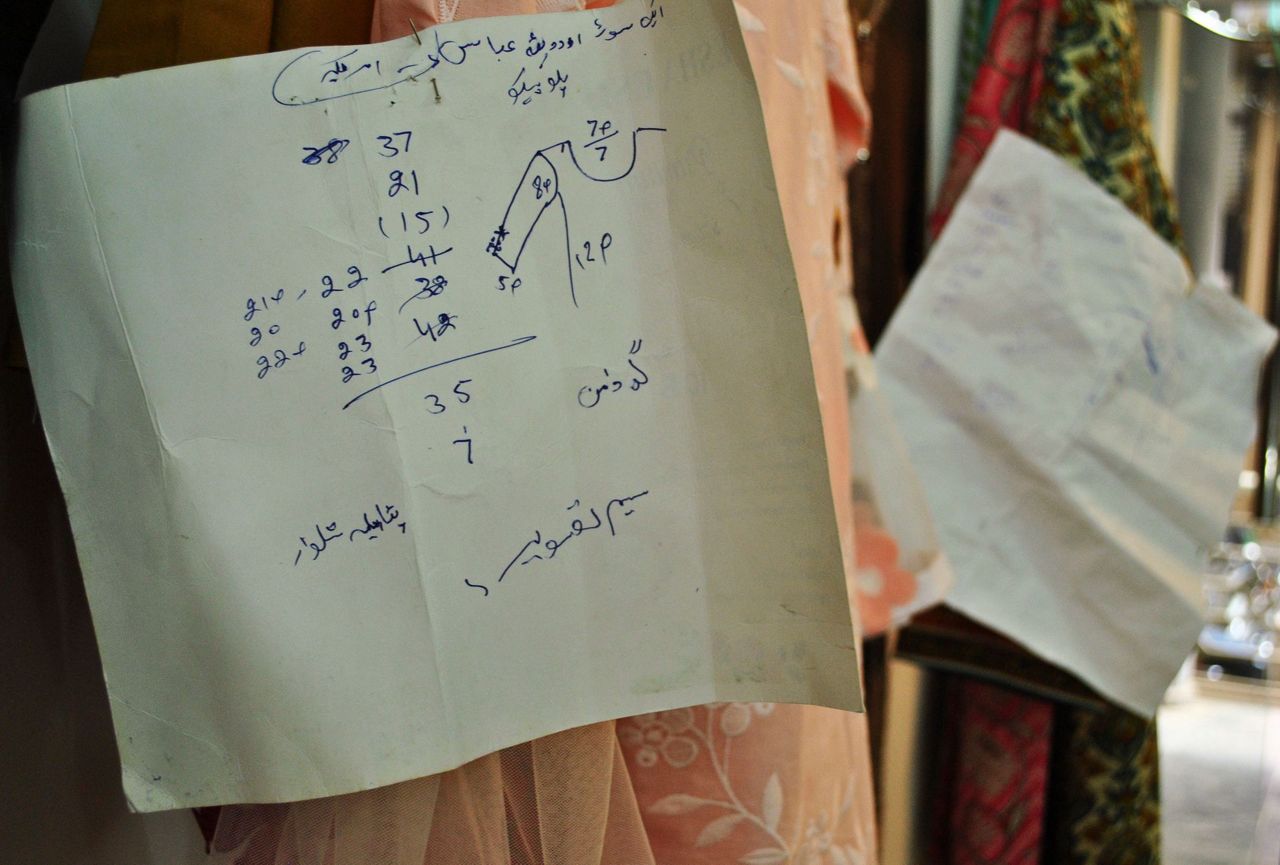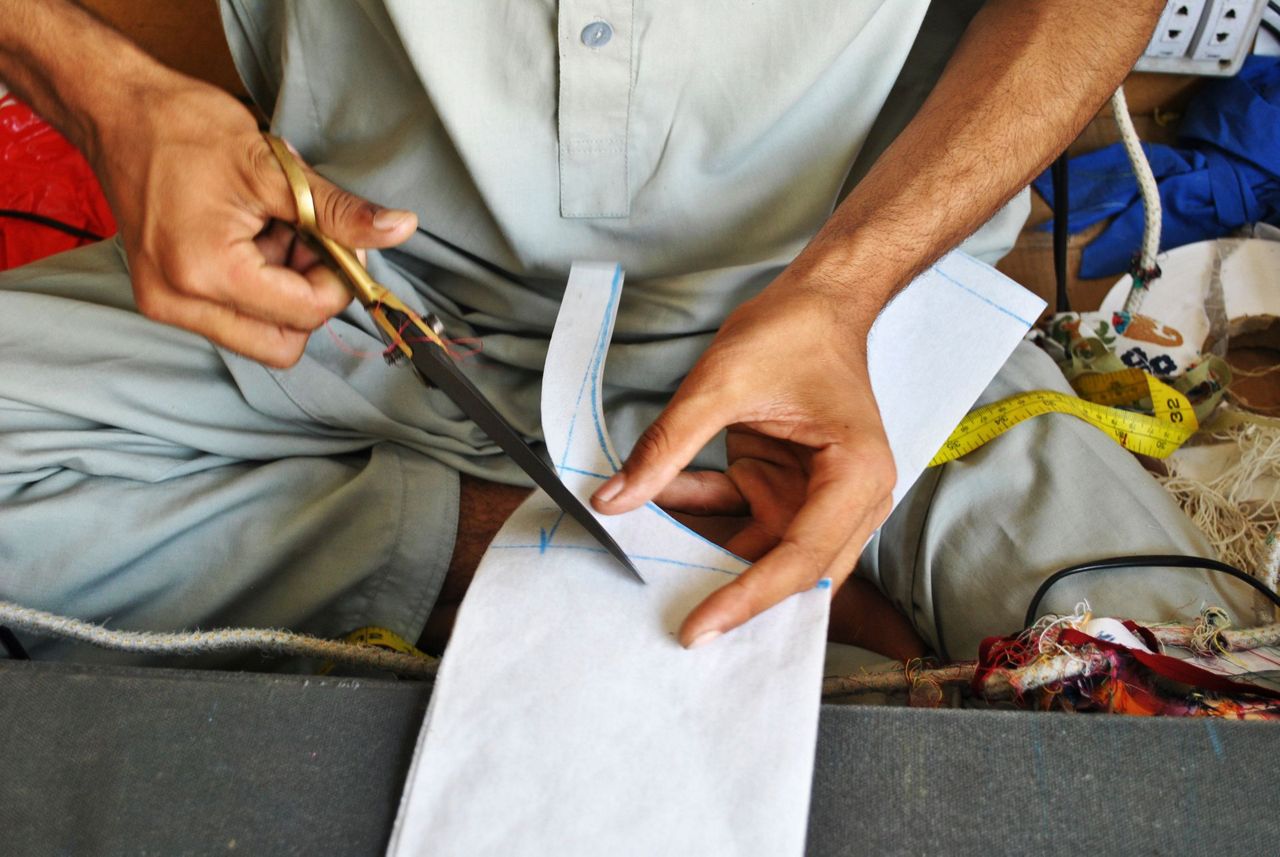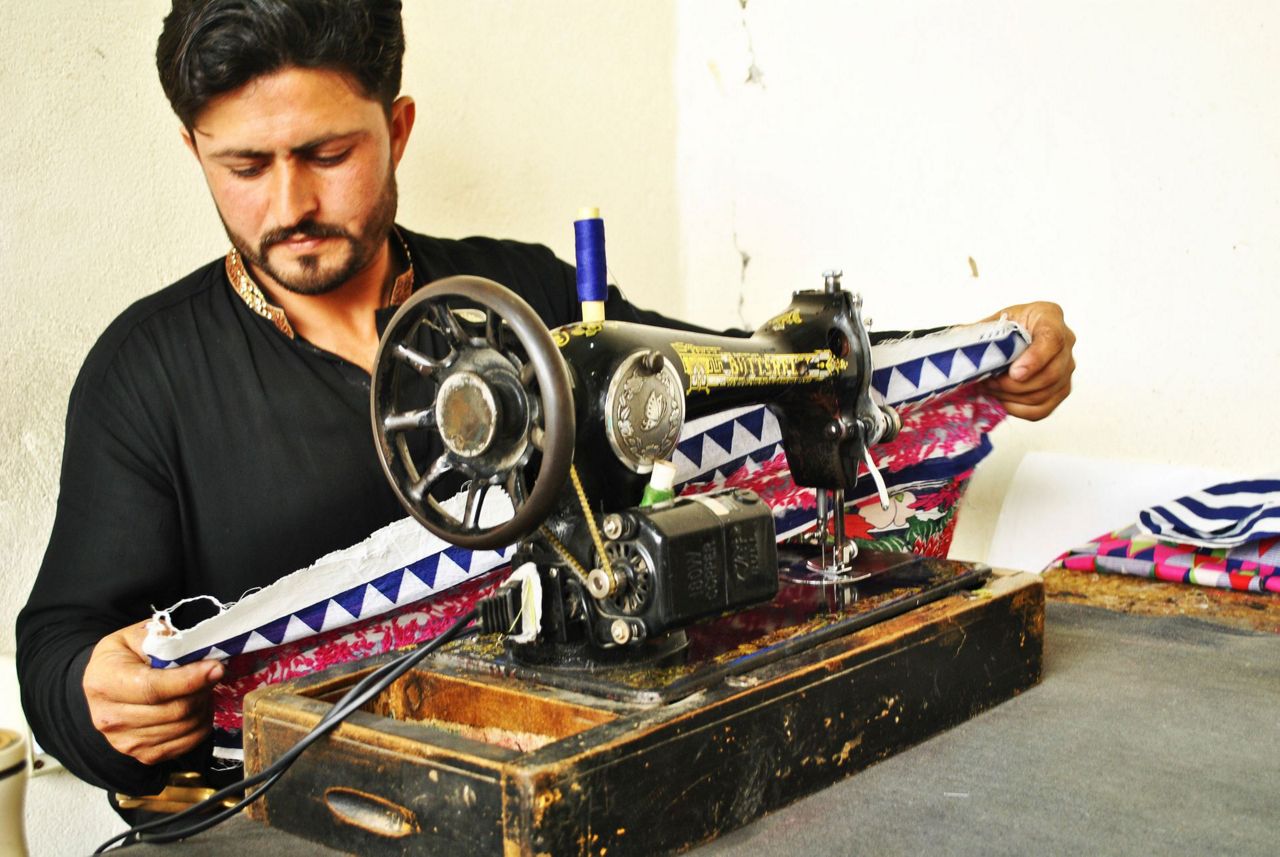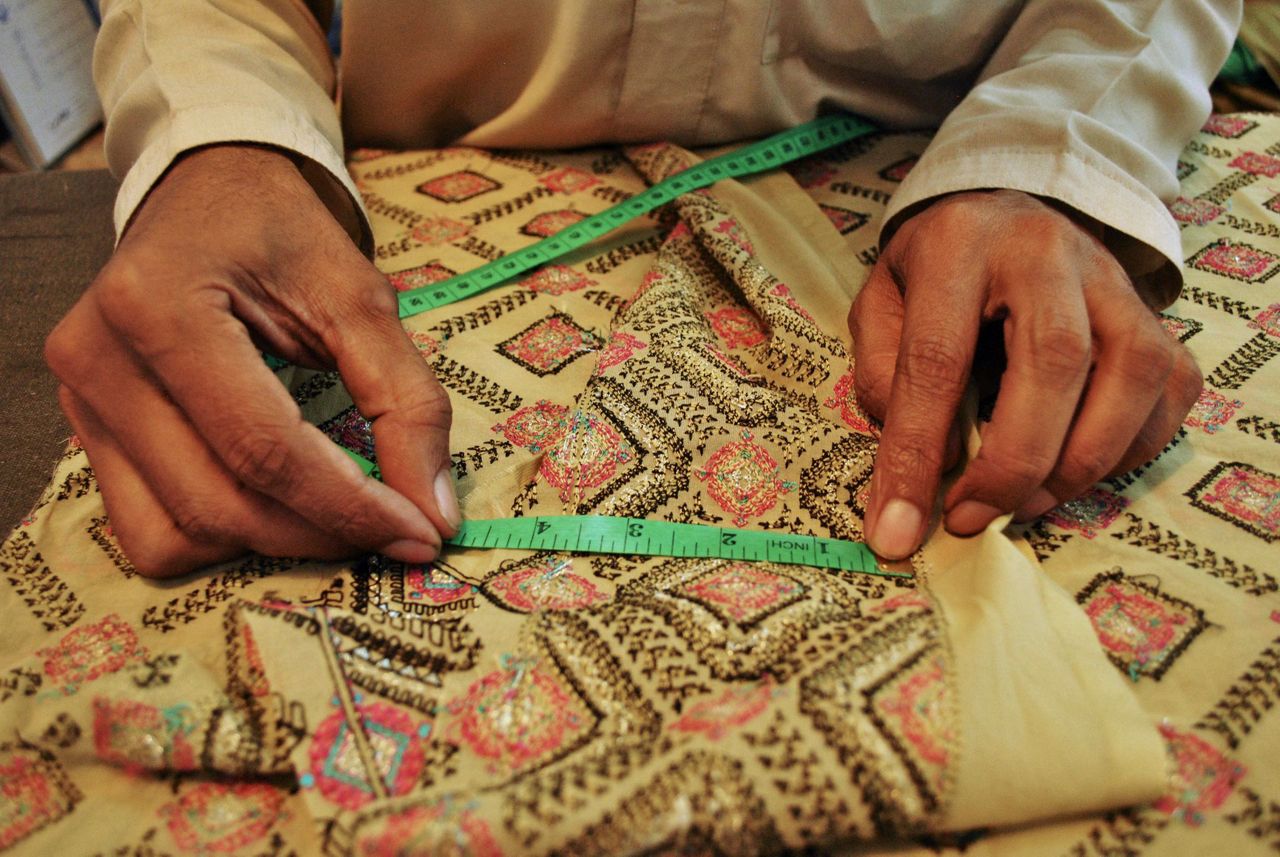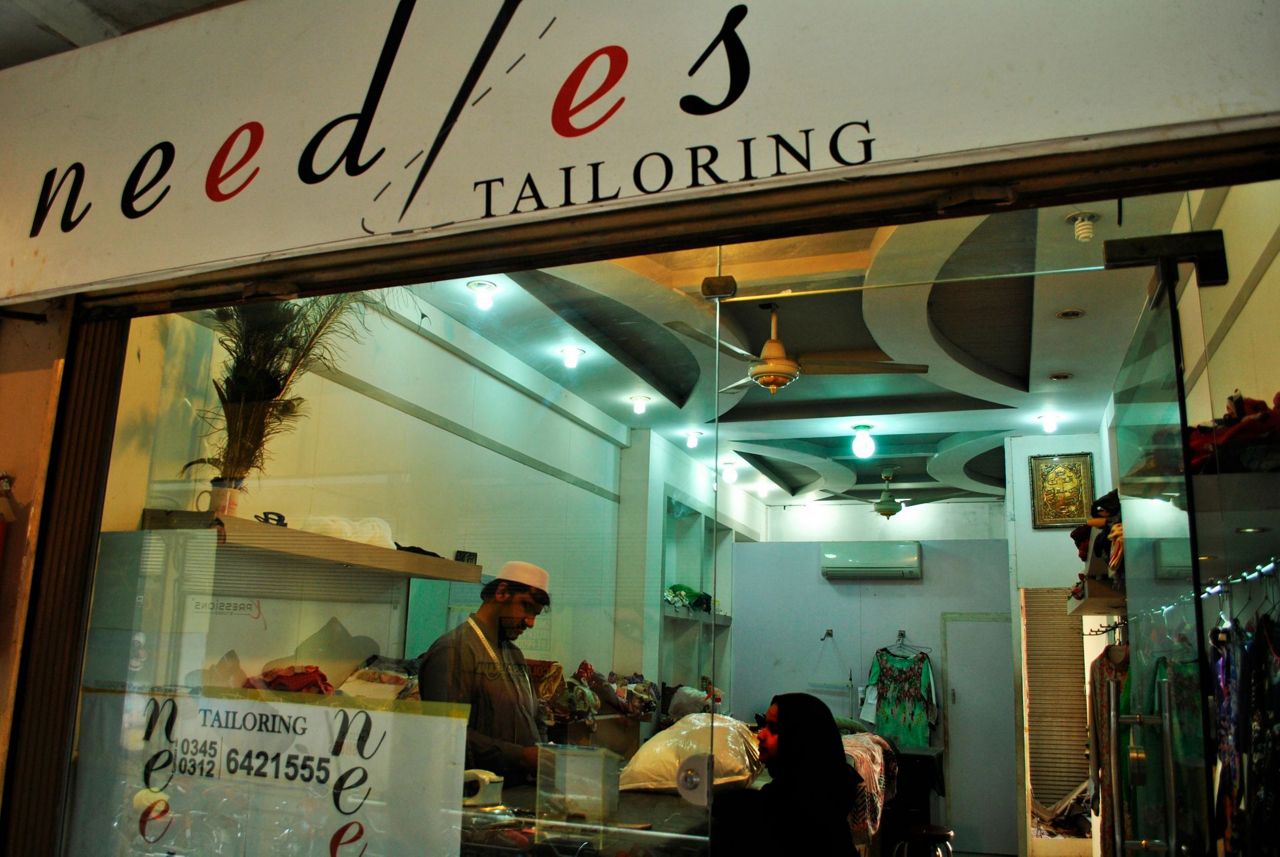MARDAN, Pakistan (AP) — Stacks of multi-colored cloth crowd the six men sitting cross-legged on the floor, working through a mountain of orders at Needles Tailoring as Pakistan's wedding season goes into high gear.
Loosening traditions mean that tailors who once made men's clothes exclusively are now overwhelmed with orders for wedding dresses. Segregation of the sexes is strictly enforced in the city of Mardan, in Pakistan's conservative Khyber Pukhtunkhwah province bordering Afghanistan, and much of Pakistan's northwest, but traditions are slowly giving way to demand.
Today women __ even in conservative regions of the country __ are more visible, boosting orders for the tailors who once were effectively banned from the much bigger business of sewing clothes for fashion-conscious women.
April was a hectic month for Mardan's tailors, as most would-be brides and grooms planned their wedding before this year's May start of Ramadan, the Islamic holy month when devout Muslims fast from sunrise to sunset.
Master tailor Badshah Khan said his craftsmen are particularly busy because many people are also having special outfits made to celebrate Eid al-Fitr, which marks the end of the month.
"We're handling a double workload now because this year again Ramadan will be in the summer so we're taking Eid orders as well," said Khan, explaining that his tailors often work 10 to 12 hours a day.
Attached is a selection of images from inside the Needles Tailoring shop, by photojournalist Saba Rehman.
Copyright 2018 The Associated Press. All rights reserved. This material may not be published, broadcast, rewritten or redistributed.



